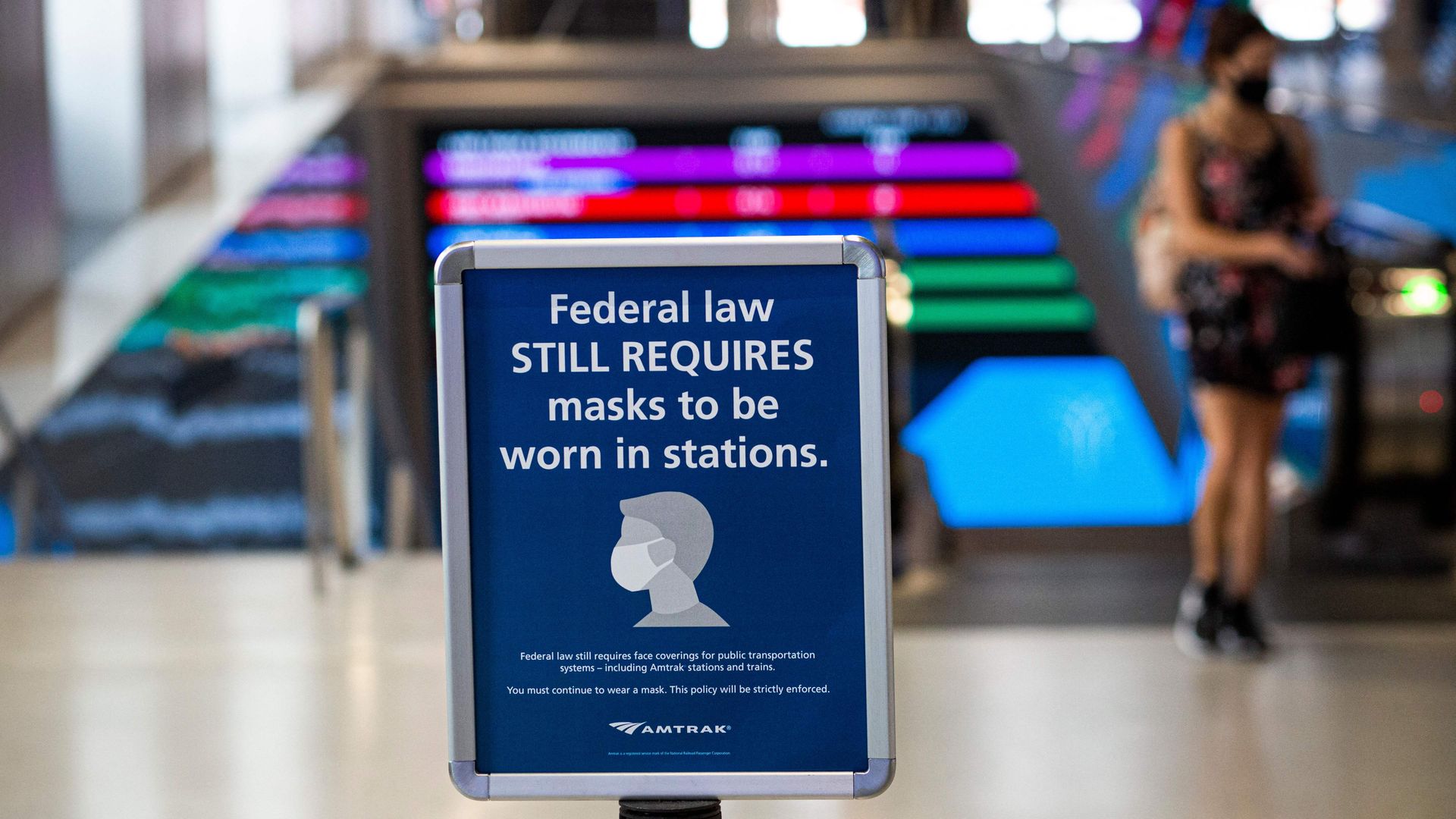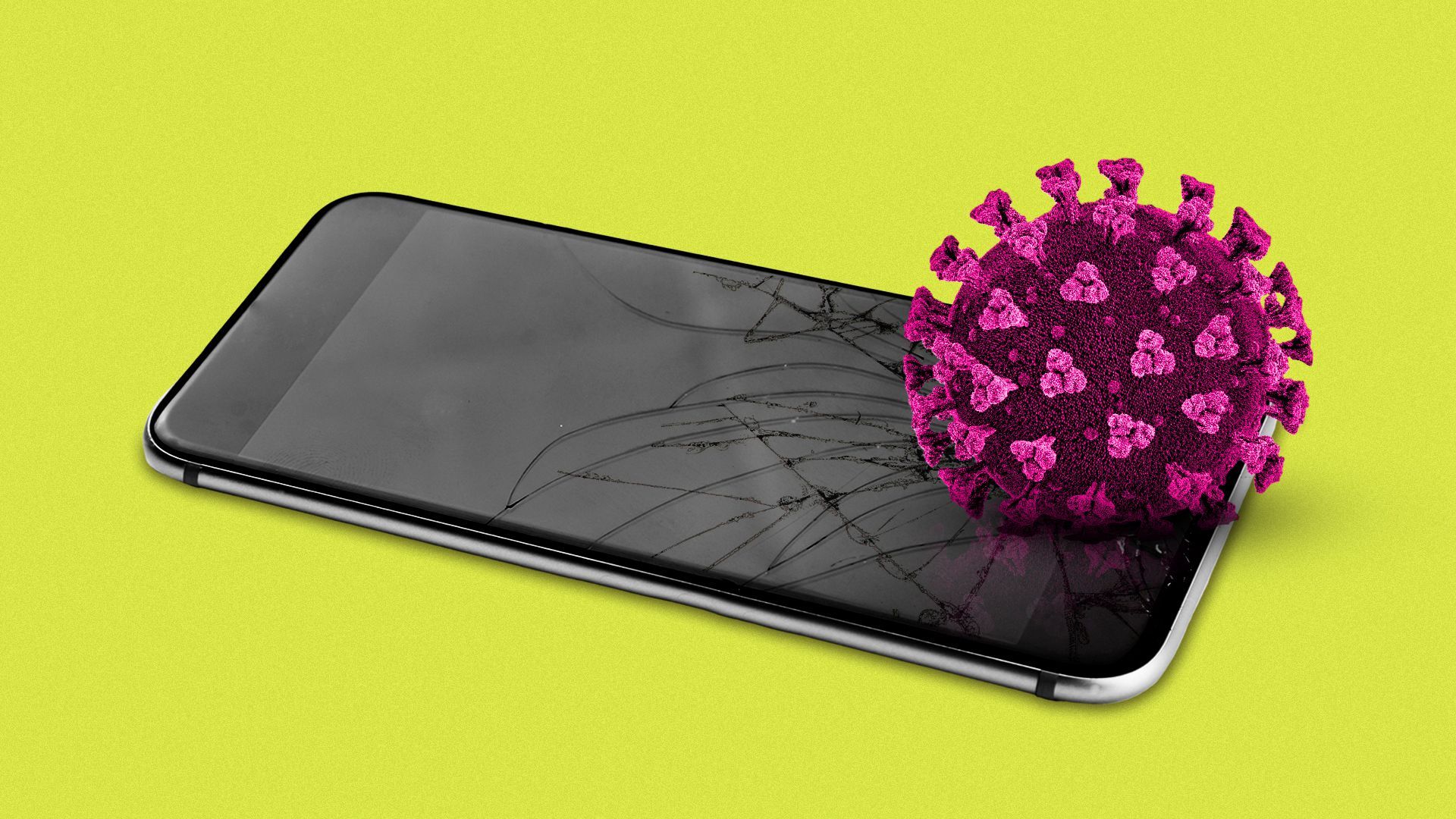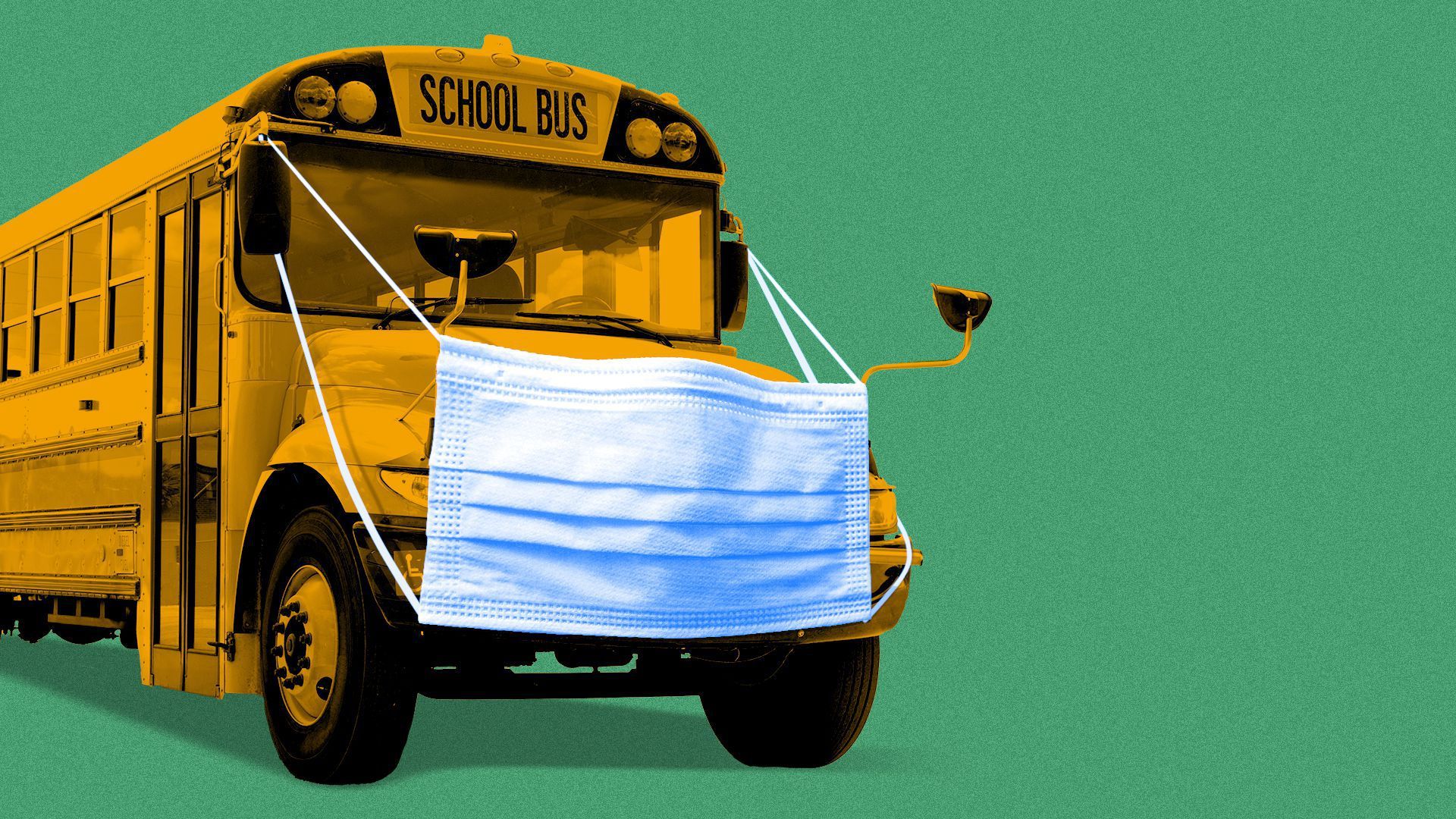| | | | | | | Presented By Partnership for America's Health Care Future | | | | Axios Vitals | | By Tina Reed ·Aug 03, 2021 | | 😙 Good morning, Vitals readers! I'm happy to be joining you again after a week away. Today's newsletter is 844 words, or a 3-minute read. | | | | | | 1 big thing: COVID's big comeback |  Data: Our World in Data; Chart: Will Chase/Axios Coronavirus hospitalizations are surging once again, threatening to overburden some local health care systems just as badly as the waves that hit last spring and summer, Axios' Caitlin Owens reports. Driving the news: Nearly a month after President Biden's self-imposed deadline, 70% of U.S. adults have received at least one shot of the vaccine. - But the Delta variant has drastically raised the portion of the population that must be vaccinated to achieve herd immunity, and more than 40,000 coronavirus patients are currently hospitalized.
- Hospitalizations "clearly will surpass waves 1 and 2," tweeted Eric Topol, executive vice president of Scripps Research.
Zoom in: Florida is setting new COVID-19 hospitalization records, forcing the state's largest hospital systems to limit visitors, expand coronavirus units and prepare against staffing shortages, ABC News reports. Between the lines: The vast majority of hospitalized coronavirus patients are unvaccinated. - But a very small percentage of vaccinated people with breakthrough cases do require hospitalizations.
- As the number of overall cases continues to grow, so will the number of breakthrough hospitalizations — the product of a growing denominator.
What we're watching: In many states where the virus is taking off, there's no political appetite at all for the mitigation policies that would help slow Delta's spread. - That means the near-vertical hospitalizations trend line can and will get higher, straining more health care systems and potentially disrupting entire communities' access to care.
|     | | | | | | 2. Axios/Ipsos poll: Unvaccinated soften stances |  Data: Axios/Ipsos Poll; Chart: Connor Rothschild/Axios The most strident group of unvaccinated Americans — what we've been calling the "hard pass" group — has shrunk to 15% of Americans, according to the latest installment of the Axios/Ipsos Coronavirus Index. - That's down from a share of about one in five that held from February until early June, Axios' Margaret Talev reports.
The big picture: Fears of the Delta variant permeated this week's national survey results. - That included everything from a rising share of parents now willing to vaccinate their kids, to companies imposing new mask mandates and extending remote work, to people social distancing and staying home.
The intrigue: Americans place the most blame for rising COVID-19 cases and the spread of new variants on the unvaccinated, people from other nations traveling to the U.S., and Donald Trump. - 'But there was a huge gap between the unvaccinated and the vaccinated when it came to the blame game, the poll found.
Go deeper. |     | | | | | | 3. Cities crack down |  | | | A woman walks past a sign calling for mask-wearing at Penn Station in New York. Photo: Kena Beancur/AFP via Getty Images | | | | New York City Mayor Bill de Blasio yesterday issued a strong recommendation for all New Yorkers to wear facemasks in public indoor settings, but didn't impose a mandate. Meanwhile, Denver Mayor Michael Hancock on Monday announced a new vaccination requirement for the city's 10,000-plus employees. - But, Hancock went a step further, announcing the city also will invoke its police powers to force private-sector workers in "high-risk" environments to receive the shot.
|     | | | | | | A message from Partnership for America's Health Care Future | | Let's build on what's working, not increase costs | | |  | | | | A new report finds that opening up Medicare to younger Americans could increase Medicare expenditures by $82.9 billion in 2022 and cause the federal deficit to rise by billions, creating new costs that could result in higher taxes for American families. Get the facts. | | | | | | 4. The massive vaccine misinformation problem |  | | | Illustration: Shoshana Gordon/Axios | | | | Nearly every type of media — newspapers, social media, websites, apps, online stores and television — shares some blame for the proliferation of misinformation influencing vaccine hesitancy in the U.S., Axios' Sara Fischer writes. Why it matters: Several recent studies and reports suggest that the COVID-19 infodemic has less to do with the failure of one medium than the lack of societal trust in key institutions that are struggling to deliver a clear and consistent message. "There is a larger context around this in which the credibility around some of these institutions has been called into questions in ways that's not helpful when we need to trust those institutions," Kathleen Hall Jamieson, director of the Annenberg Public Policy Center at the University of Pennsylvania, said in a recent interview with Axios. Driving the news: A new study covered by the New York Times found that local print, broadcast and radio outlets are often inadvertently peddling vaccine misinformation. The big picture: The lack of trust in institutions that are key to delivering messages about vaccine effectiveness — including government agencies, health experts and the media — is helping to fuel misinformation, and that problem is bigger than any one outlet. |     | | | | | | 5. Parents caught in K-12 masking debate |  | | | Illustration: Brendan Lynch/Axios | | | | Parents in some parts of the U.S. are increasingly frustrated at their deadlocked school districts when it comes to masking policies and the few options for protecting unvaccinated kids this fall, Axios' Marisa Fernandez writes. The big picture: The Biden administration's recent plea that people wear masks indoors again risks falling on deaf ears in the hardest-hit states, leaving families who are at odds with local policies in a quandary. Driving the news: The Delta variant makes safe unmasking much harder, especially without an available vaccine for those 12 and under, according to a preprint study led by the Harvard T.H. Chan School of Public Health. - "Mitigation measures or vaccinations for students when available can substantially reduce these risks," the authors write.
Many states, including most recently Louisiana, Oregon and Nevada have released policies saying students and staff in schools should wear masks. - However, a number of states, including Arkansas, Florida, Iowa, Montana, South Carolina, Tennessee and Texas have prevented local school districts from requiring masks, according to AARP.
Share this story. |     | | | | | | A message from Partnership for America's Health Care Future | | Let's build on what's working, not increase costs | | |  | | | | Opening up Medicare to younger Americans could come with high costs and negative, unintended consequences for American patients. Our leaders need to focus on solutions that build on and improve what's working in health care, not add new costs and consequences. | | |  | | It'll help you deliver employee communications more effectively. | | | | | | Axios thanks our partners for supporting our newsletters. If you're interested in advertising, learn more here.
Sponsorship has no influence on editorial content. Axios, 3100 Clarendon Blvd, Suite 1300, Arlington VA 22201 | | | You received this email because you signed up for newsletters from Axios.
Change your preferences or unsubscribe here. | | | Was this email forwarded to you?
Sign up now to get Axios in your inbox. | | | | Follow Axios on social media:    | | | | | |









No comments:
Post a Comment